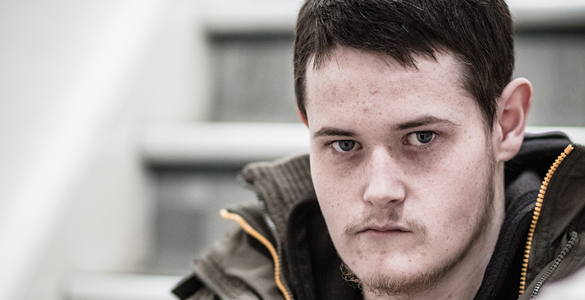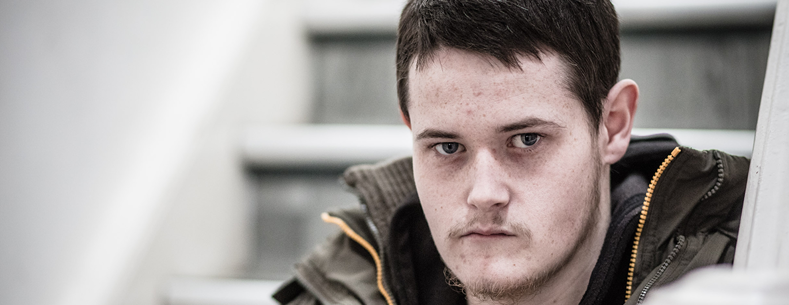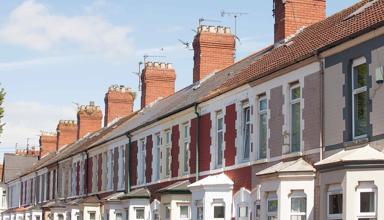On Tuesday, 20 November, the Minister for Housing and Regeneration will be making a statement – Investing in Early Intervention and Cross-Government Approaches to Tackle Youth Homelessness.
In October 2015, a group of charities working with homeless young people started a campaign to bring an end to the practice of placing homeless 16 and 17 year olds into bed and breakfast accommodation.
The Code of Guidance for Local Authorities on the Allocation of Accommodation and Homelessness was revised in 2016, and now states that Welsh Ministers intend to see an end to the use of B&B accommodation for single 16 and 17 year olds, and will encourage and support the minimisation of the use of this form of temporary accommodation.
In June 2017, the youth homelessness charities involved decided to form a national coalition designed to end youth homelessness in Wales. The End Youth Homelessness Cymru coalition was established with the aim of ending youth homelessness by 2027.
The causes of youth homelessness
There are a variety of inter-connected issues which can lead to a young person becoming homeless, with research from Llamau suggesting that 97% of homeless young people have experienced at least one Adverse Childhood Experience (ACE). Llamau notes that:
- 25% of the homeless young people they support have been in care;
- 90% of the young people they support meet the criteria for at least one current mental health issue; and
- Approximately 15% of the young people they support have been involved with youth offending services.
What progress has been made on ending youth homelessness?
In 2016, the Welsh Government published its Welsh Youth Homelessness Positive Pathway, which is a flexible framework for local authorities and their partners to use to provide a planned approach to homelessness prevention and housing options for young people. The Positive Pathway Model is made up of five steps:
- Information and advice for all young people and families;
- Targeted early intervention;
- Integrated response ‘hub’ or ‘virtual hub’ and gateway to commissioned accommodation and support;
- Commissioned accommodation and support; and
- A range of housing options.
In August 2017, the then Communities and Children Secretary, Carl Sargeant, announced that an additional £2.1 million had been allocated to help tackle youth homelessness and rough sleeping. This was followed by the announcement of a further £500,000 in September 2017. In December 2017, the First Minister, Carwyn Jones, announced that an additional £10 million would be available in 2019-20 to support the Welsh Government’s mission to end youth homelessness by 2027.
The Welsh Government’s outline draft budget narrative 2019-20 reiterates that an additional £10 million will be provided in 2019-20 to tackle youth homelessness. It notes that this funding will be targeted through additional funding in the Revenue Support Grant (RSG) and via direct funding to national projects and the third sector in Wales.
What action is being taken beyond government to end youth homelessness in Wales?
The End Youth Homelessness Cymru coalition has established a Strategy Group to provide strategic support and intelligence. The Strategy Group is made up of:
- The First Minister, Carwyn Jones;
- The Future Generations Commissioner, Sophie Howe;
- The Children’s Commissioner, Sally Holland;
- The Archbishop of Wales, John Davies;
- The Chair of the WLGA, Debbie Wilcox; and
- End Youth Homelessness Cymru patron, Michael Sheen.
A Steering Group has also been established made up of representatives from organisations such as Dewis, Gisda, Cardiff University, Cymorth Cymru, Shelter Cymru, WLGA, and local authorities. The Steering Group’s role is to:
- Ensure the focus of work remains resolutely on ending youth homelessness;
- Maintain oversight of the Forward Work Plan to ensure the various elements/streams of work of End Youth Homelessness Cymru are delivered and necessary connections made; and
- Advocate for ending youth homelessness in Wales, informed by the work of End Youth Homelessness Cymru.
End Youth Homelessness Cymru aims to bring an end to youth homelessness by:
- Identifying early indicators of vulnerabilities which can lead to homelessness and setting out how these might be addressed through primary –preventative, cross-disciplinary initiatives;
- Seeking to understand and reduce the links between:
- Educational disengagement and homelessness;
- The care system and homelessness; and
- The youth justice system and homelessness.
- Ensuring crisis support programmes are in place for those who are past the point of primary prevention;
- Ensuring the availability of good quality employment opportunities for young people vulnerable to homelessness; and
- Ensuring that those young people with characteristics that may mean they are more vulnerable to homelessness (e.g. those who are LGBT+, those with mental ill health, those with substance misuse issues, migrants, asylum seekers, those with learning difficulties) are appropriately supported at institutional and social levels.
End Youth Homelessness Cymru will establish individual Task and Finish Groups to address some of the specific key issues (listed above). The first Task and Finish Groups will consider:
- The links between educational disengagement and youth homelessness;
- The links between the care system and youth homelessness;
- Ending youth homelessness within the LGBT+ community in Wales; and
- Support for the specific requirements of those with mental ill health experiencing youth homelessness in Wales.
Article by Megan Jones, National Assembly for Wales, Research Service.






